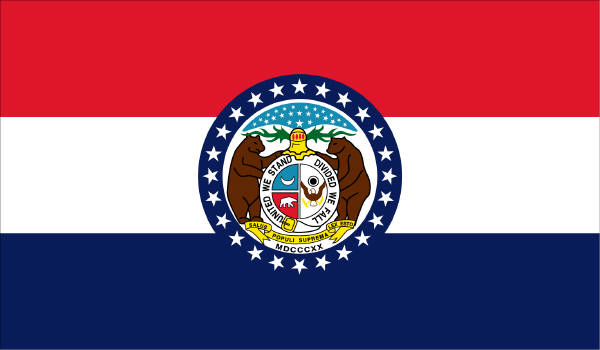The Missouri State Legislature placed an amendment on the ballot that would overturn Amendment 3 (2024), which amended the state constitution providing for the fundamental right to reproductive freedom, including abortion. Voters will decide on the new amendment in November 2026.
This will be the first state where voters will be deciding to overturn an existing right-to-abortion amendment.
Amendment 3, which Missouri voters passed in 2024 by 52%-48%, defined the right for reproductive freedom as "the right to make and carry out decisions about all matters relating to reproductive health care, including but not limited to prenatal care, childbirth, postpartum care, birth control, abortion care, miscarriage care, and respectful birthing conditions." It also provided for the state legislature to enact laws that regulate abortion after fetal viability, which is defined in the initiative as “in the good faith judgment of a treating health care professional and based on the particular facts of the case, there is a significant likelihood of the fetus’s sustained survival outside the uterus without the application of extraordinary medical measures.”
Missouri was one of 14 states that placed a constitutional amendment on a ballot to amend the state constitution to provide for the right to an abortion. The first three states to pass these amendments were California, Michigan, and Vermont in 2022, the same year that Roe v Wade was overturned following the Dobbs v. Jackson Women's Health Organization U.S. Supreme Court decision. Out of the 14 states, voters passed right-to-abortion amendments in 11 of them, and rejected amendments in three—Florida, Nebraska, and South Dakota.
The new constitutional amendment, which Missouri voters will decide in 2026, was proposed in the Missouri State Legislature. The amendment, House Joint Resolution 73 (HJR 73), passed the House by 103-51 on April 17, 2025, and was agreed to in the Senate on May 14, 2025.
HJR 73 would repeal Amendment 3, and replace it with a new section in the Missouri Constitution, which would prohibit abortion, except in cases of medical emergency, fetal anomaly, rape, or incest. For cases of rape and incest, the abortion can only be performed before 12 weeks. It would prohibit abortions based on a fetal disability diagnosis, except in cases of fetal anomaly. It would require parental or guardian consent for minors seeking an abortion and prohibit fetal organ harvesting. However, the amendment would also provide for the ability of a woman to access healthcare in cases of miscarriage and ectopic pregnancy.
The amendment would also prohibit gender transition surgeries for minors under 18, and prohibit the prescribing of cross-sex hormones or puberty blocking drugs to minors under 18. This does not include the use of surgeries, drugs, or hormones to treat children born with medically verifiable disorders of sex development, or to treat any infection, injury, disease, or disorder unrelated to the purpose of gender transition. This would be the first statewide ballot measure prohibiting gender transition surgeries for minors or the prescription of the aforementioned medications to minors that voters will decide on.
State Sen. Brad Hudson (R-33), who supports HJR 73, said, “From constituents and individuals that I've been talking to about this issue, they want another opportunity to weigh in on this. They don't feel like that they were given an option in Amendment 3 that accurately reflects who they are and where they are on the life issue."
Margot Riphagen, president and CEO of Planned Parenthood Great Rivers Action, opposes the measure, saying, “The majority of Missourians want to make their own decisions about health care without interference from prying politicians … We will not stand for more political games at the expense of the thousands of patients in Missouri who could finally access care they need without crossing state lines. Missouri voters will once again send a clear message that enough is enough."
Missouri voters will also decide two other measures in 2026: an amendment that would require the Jackson County Assessor to be an elected position and a measure to renew an existing sales and use tax to fund state parks and soil and water conservation.
Additional reading:



